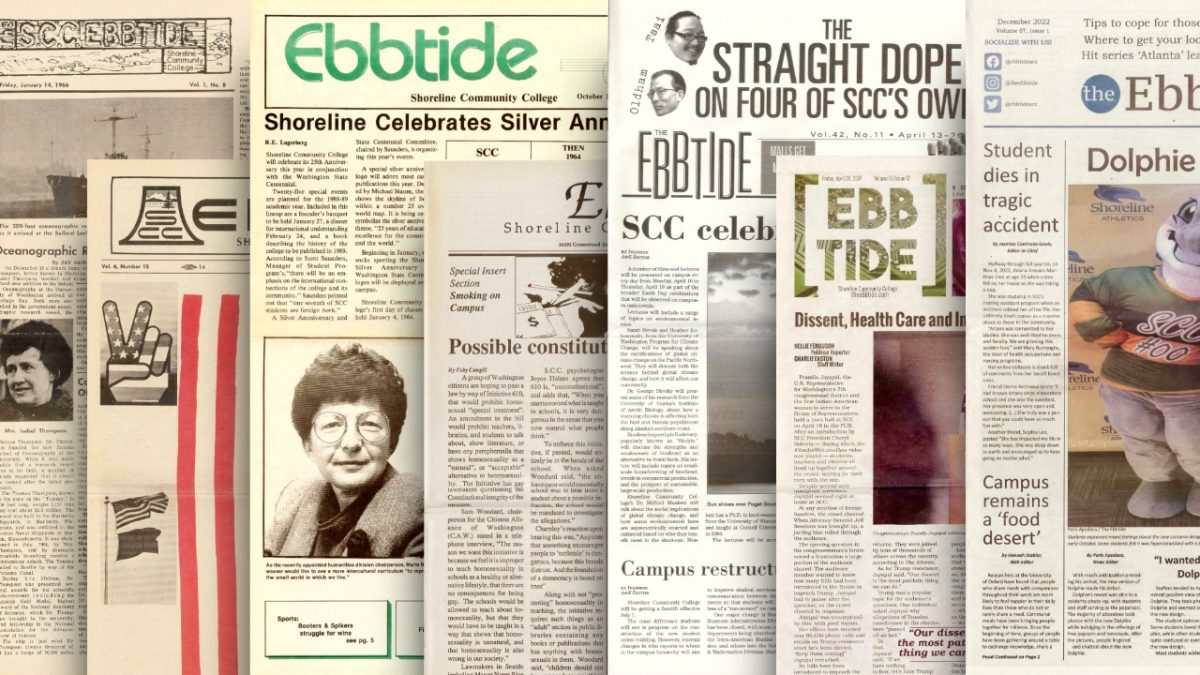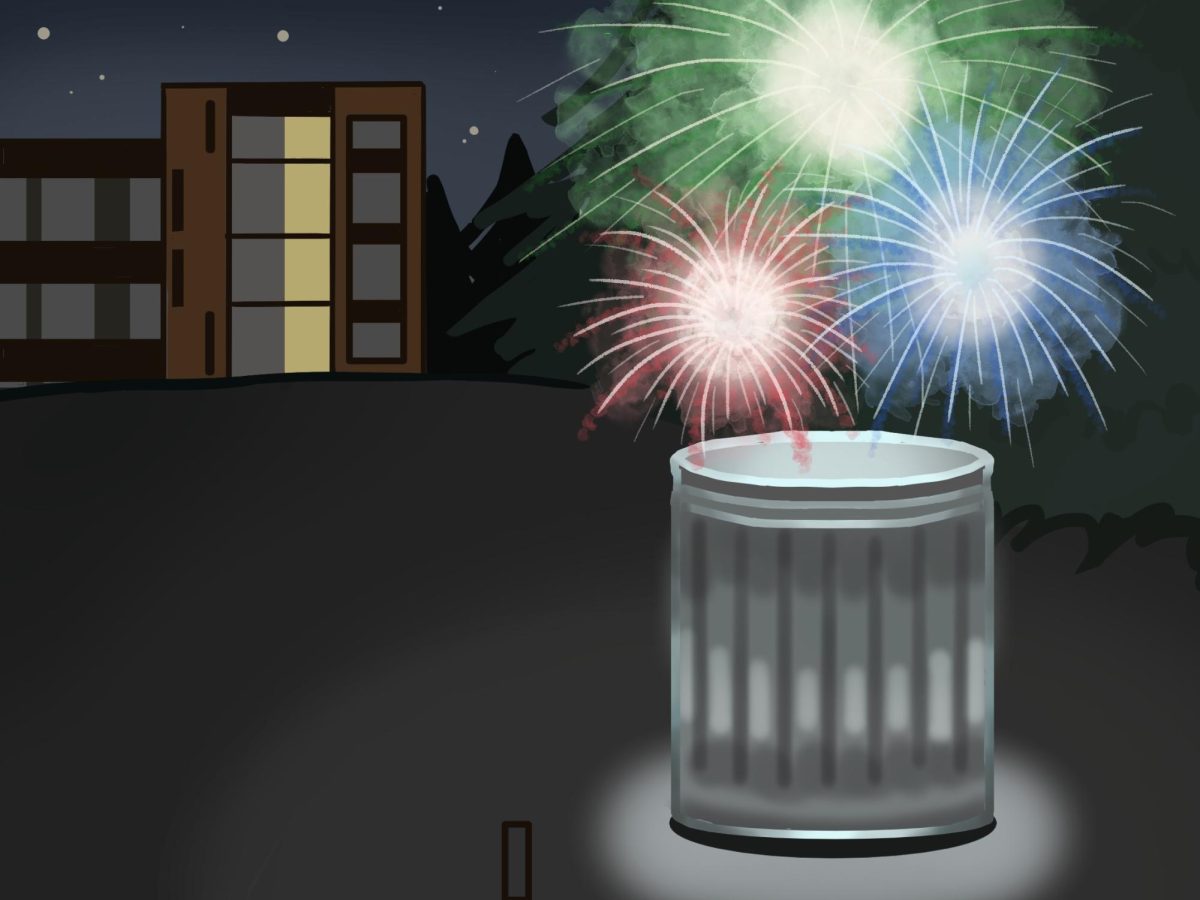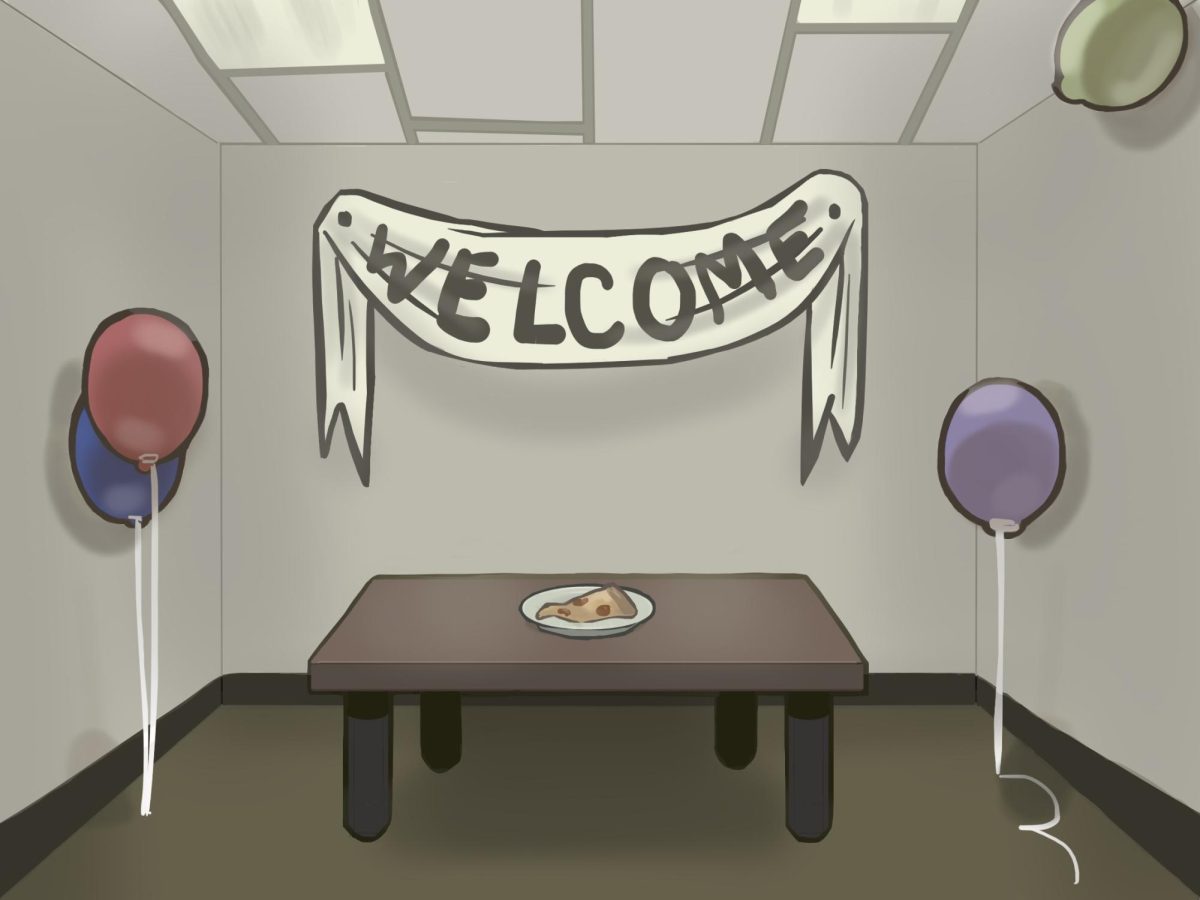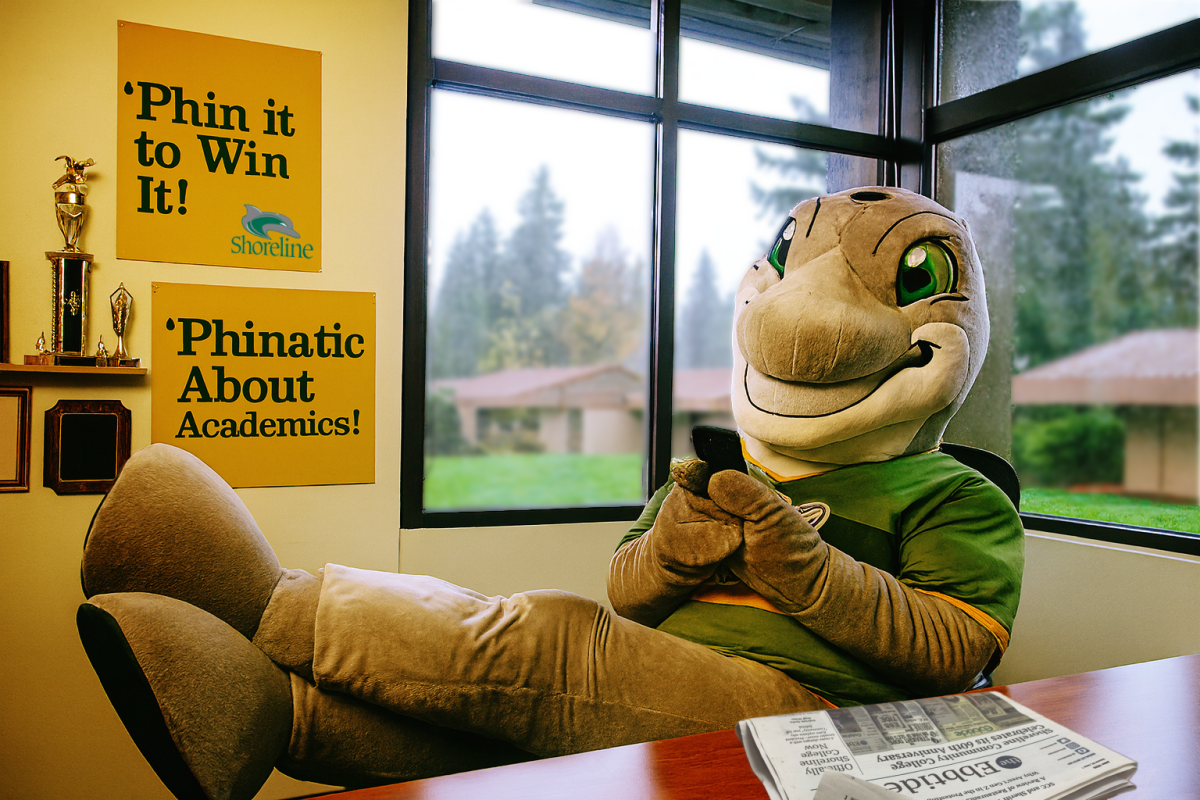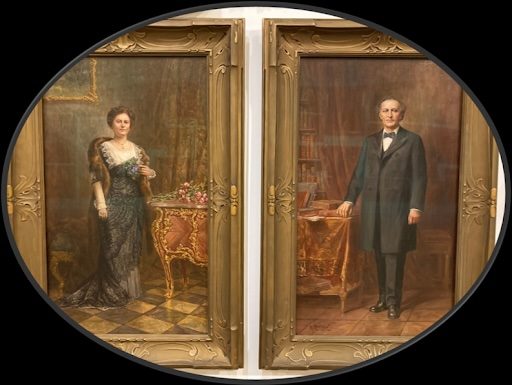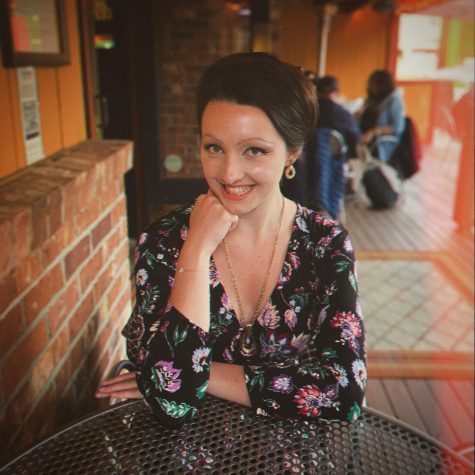“MACBETH” WILL STRUT AND FRET ITS HOUR UPON SCC’S STAGE
This month, history will be made as “Macbeth” becomes the first William Shakespeare work ever to be performed at SCC.
Penned by the legendary playwright at the beginning of the 17th century, the play remains a timeless tragedy that tells the story of power, paranoia and a plan gone awry.
The Story of “Macbeth”
Macbeth is a military man who, along with his friend Banquo, achieves success while away at war. On the way home, Macbeth is stopped by three witches who insist he will become king — without revealing how. Macbeth returns a hero with his sights set on the throne, but the king claims it is reserved for his own son.
The solution? Macbeth and his wife, Lady Macbeth, plot to murder them both.
Once Macbeth has the crown, everything falls into disarray. Suspicion compels him to wipe out anyone who poses a threat to his newfound royalty, while Lady Macbeth slowly spirals into insanity.
Director Debra Pralle teaches classes at SCC ranging from acting to cinema history and has directed shows from Tennessee Williams shorts to The Laramie Project.
“It’s a story of believing in something and making one truly terrible decision,” Pralle said of “Macbeth.”
Around the time “Macbeth” was penned, Queen Elizabeth was making arrangements for King James I to be her heir. Not only was James I the king of Scotland (where “Macbeth” is traditionally set), but he also believed in witchcraft and claimed he was a descendant of Banquo: a real-life royal assassin who Shakespeare based his character on.
This is an example of how Shakespeare would mirror present-day politics in order for his own work to gain popularity. “He was smart in that he played to the times,” Pralle said.
Pralle is fascinated by the spiral of darkness that can come with the promise of success. She explained that if someone was told they would win the lottery or become president, it would inevitably have a strong influence on them — and the lengths at which they may go to ensure that fate could prove deadly.
Pralle hopes to reflect this concept: “I want to hold up a mirror and say, ‘try as you might, this could be you,’” she said.
New Eyes for an Old Tale
At the beginning, Pralle gathered her cast and told them that above all else she wanted the show to be relatable, noting the importance of the spoken word. “At the end of the day, you need to know what you’re saying, why you’re saying it, and what you want,” she said.
Though the play has seen centuries of adaptations, Pralle has still managed to cook up some exciting new spins.
“Macbeth” will be set in contemporary times that aren’t too modern, and its archaic English language will feature no accents. “I want the audience to look at (the show) and go, ‘that could be happening out there,’” Pralle said.
In terms of costumes, you can expect to see present-day camoflauge on the soldiers and elegant dresses on the ladies.
Pralle opted to depict “Macbeth’s” harsh violence, which is historically not shown on stage.
“We’re very spoiled in this country because battles always happen someplace else,” Pralle said. “It’s not in our backyard, so to speak; but I kind of want the audience to feel like it could be.”
Another big change comes with the witches: While they only make limited appearances in most productions, Pralle had other ideas. “I’ve got them everywhere,” she said. “They are fully integrated into the show.”
Making “Macbeth”
Even though a streak of snow days caused them to miss seven rehearsals, the cast and crew plowed on. Pralle jokingly called this their “curse,” referring to a long-held myth that something terrible will happen if the name “Macbeth” is uttered during rehearsals.
According to Pralle, building the environment was a “fascinating process.” When set designer Richard Schaeffer came up with the initial idea, the two riffed on it but something wasn’t clicking. An unsatisfied Pralle hunted for pictures from other incarnations of “Macbeth” until she found examples she liked, and Schaeffer — using them for inspiration — reinvented the entire look.
“Once I saw the new design it was as if the entire show fell into place,” Pralle said.
The play will be underscored with music by Seattle-based cellist Jami Sieber, and will also feature a fair share of carnage. “You can’t do this show and not have blood,” Pralle said.
The Players
Amanda Korkunis, who plays Lady Macbeth, is in her second quarter of studying acting at SCC. Although she has never joined a Shakespeare cast until now, she is able to relate to her character because she recently got married herself. She approached her execution of the role with “caution and with excited anticipation.”

Kennedy Clark, who is in her second year of studying drama and general education at SCC, said her experience as one of the three witches has been a “difficult kind of fun.” She noted the long process that went into developing the witches as a unit while still maintaining each of their unique personalities; a tactic which will allow viewers to pick up on the slight idiosyncrasies that exist within the trio.
Isabel Wiebe plays a dual role as Lady MacDuff, the wife of another prominent character, and the daughter of Siward, leader of the English army. Wiebe is in her second quarter studying anthropology at SCC, and is no stranger to Shakespeare: She previously appeared in “A Midsummer Night’s Dream” and “The Winter’s Tale,” the latter of which took her on a tour of Devon, England in 2016 — a recollection that is now a hazy-yet-fond memory of 4 a.m. call times and chilly outdoor performances.
A Dream Come True
“Macbeth” was the first show that Pralle auditioned for as an actress in college — but she didn’t get the part.
While watching the play backstage night after night, Pralle firmly believed she would one day star in it. And while she hasn’t yet had the chance to act in “Macbeth,” she didn’t hesitate to select the title when approached with the opportunity to direct Shakespeare at SCC.
Although she has acted in Shakespeare productions including “As You Like It” and “King Lear,” this will be the the first of his works Pralle has ever directed.
The story resonates with Pralle due to its timeless message of undeserved power. “He is not a leader,” Pralle said of Macbeth. “He should not be king.”
What Took so Long?
In all of SCC’s 55 years, the words of Shakespeare have never graced its stage. Pralle thinks the delay can be attributed to generations of hesitation.
“Shakespeare’s another layer of acting,” Pralle said, referring to the technique as “its own bag of tricks.”
The fact that SCC is not a four-year program might also hinder its demand, as professors never know if they will be able to continue building upon its unique skill set with the same students.
Another limiting aspect is that classes require at least 15 students to be registered. “The times that I’ve tried to teach a Shakespeare class, we’ve only had eight or nine people enroll in it,” Pralle said.
But for fans of Shakespeare, things are looking up.
“Macbeth” will make its SCC debut on March 7, and Pralle greatly anticipates its premiere. “I always know a show’s going well when I get the shivers as I’m watching things,” she said.
Pralle encourages audiences not to be intimidated by the complexity of the play, but to rather sit back and let it wash over them.
“It’s going to be an energetic, scary, fun, passionate evening,” she said.
Refer to the A&E Calendar for a complete list of showtimes.







